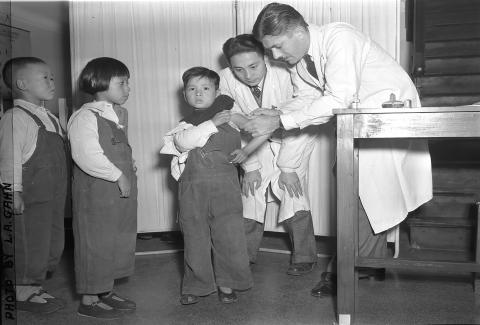- عربي
- 中文
- English
- Français
- Русский
- Español
The history of multilateralism in controlling pandemics

Document Summary:
Contagious, fast-spreading diseases do not respect borders and therefore require international cooperation to prevent their spread.
This year has been a dramatic reminder of this fact, but it is important to reflect on the long history of multilateralism’s fight against disease. Almost 100 years before the World Health Organization was created, countries around the world recognized the need for a global approach to solve health crises.
In 1851, the first International Sanitary Conference took place in Paris, where 14 nations came together to agree on a set of international health regulations. These conferences continued until 1938 and led to the creation of the first international organization concerned with health in 1907-- the International Office of Public Hygiene or Office international d'hygiène publique (OIHP), in French.
By 1926, the world established the first truly global approach to health and sanitation, the International Sanitary Convention. However, with the outbreak of the Second World War and the occupation of Paris, the OIHP was not able to function as intended and could not fulfil its international health functions.
Nonetheless, as the war raged on, Allied countries, popularly styled as “The United Nations,” knew that conditions created by war were a major factor in spreading diseases and had begun planning ways to avoid possible epidemics and pandemics. Realizing that a multilateral approach was necessary, they created the United Nations Relief and Rehabilitation Administration (UNRRA).
One of UNRRA’s major endeavours was to revise and administer two of the previous conventions: the International Sanitary Convention and the International Sanitary Convention for Aerial Navigation. Both came into force in January 1945.
UNRRA was able to successfully complete this task and ensure that there were no major outbreaks of diseases in the post-war period. In 1948, the World Health Organization was created, and it absorbed the health functions of UNRRA and the OIHP.
To learn more about this history, visit the new online exhibit, Multilateralism and the International Sanitary Conventions of 1944, on the Archives and Records Management Section (ARMS) website.
Link to an External Document:

